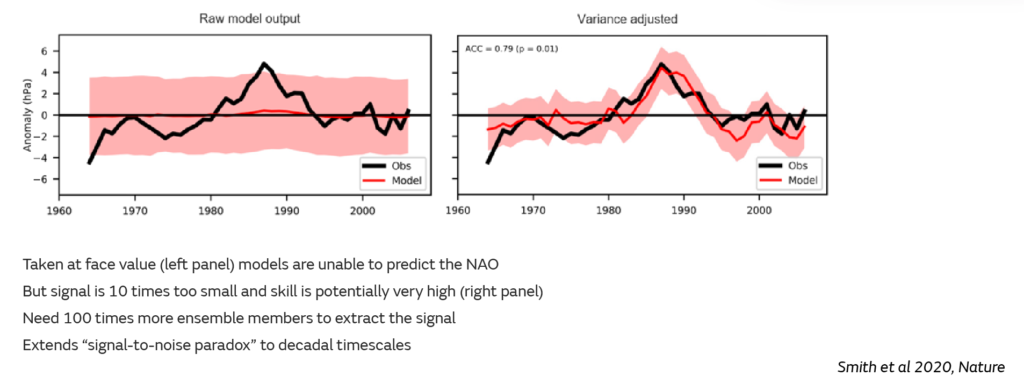According to the UK Met Office, accurate prediction of the North Atlantic climate is a step closer following what it is billing as a major scientific breakthrough, which it says will facilitate longer-term prediction of North Atlantic pressure patterns – the key driving force behind winter weather in Europe and eastern North America.
Published in Nature, the study analyzed six decades of climate model data and suggests that decadal variations in North Atlantic atmospheric pressure patterns (known as the North Atlantic Oscillation) are highly predictable, enabling advanced warning of whether winters in the coming decade are likely to be stormy, warm and wet, or calm, cold and dry.
However, the study revealed that this predictable signal is much smaller than it should be in current climate models. Hence, 100 times more ensemble members are required to extract it, and additional steps are needed to balance the effects of winds and greenhouse gases. The team showed that, by taking these deficiencies into account, skillful predictions of extreme European winter decades are possible.
Lead author Dr Doug Smith, who heads decadal climate prediction research and development at the Met Office Hadley Centre, explained, “The message from this study is double-edged: climate is much more predictable than we previously thought, but there is a clear need to improve how models simulate regional changes.”
The Met office notes that improving model simulations will enhance the UK’s response, resilience and security against the effects of extreme weather and climate change – influencing future policy decisions to protect people’s lives, property and infrastructure.




